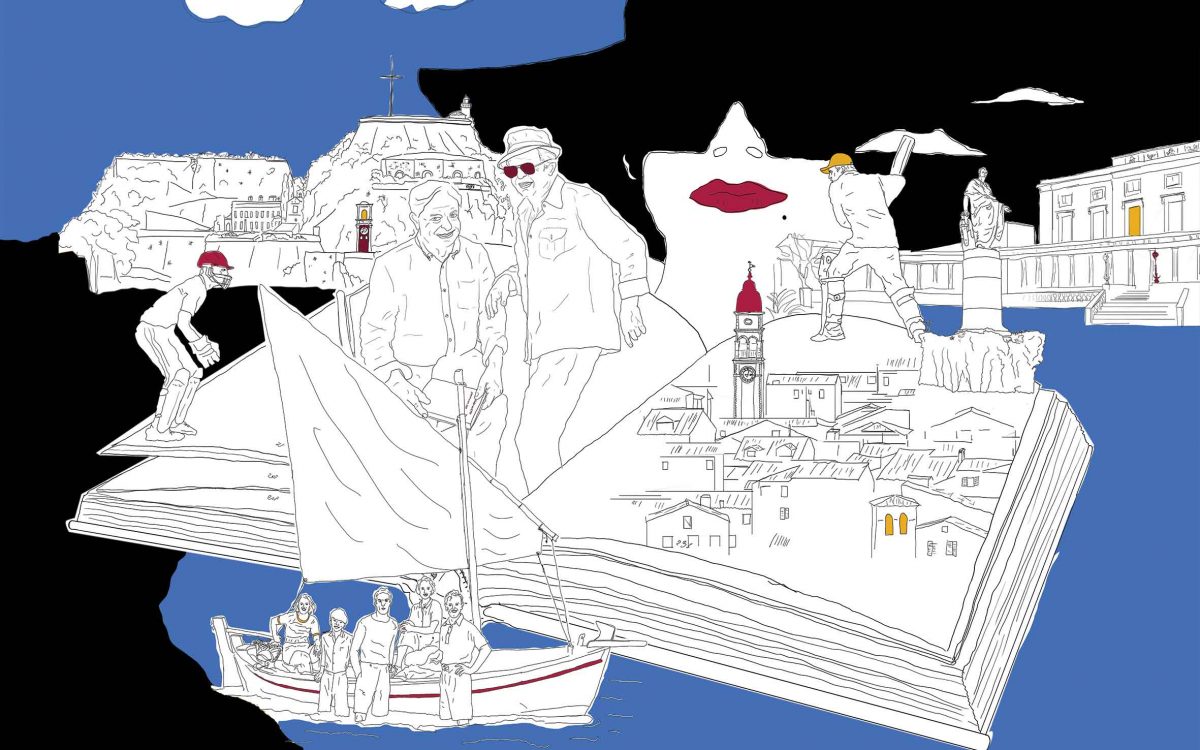Early on a Sunday morning, I walked through the narrow stone-paved streets of Corfu’s Old Town to enjoy coffee in the Liston Arcade, as custom dictates one must do at least once on a visit to this island. All around me, the walls were steeped in history. The tall Venetian buildings remained unsullied – this is, after all, a UNESCO World Heritage Site – and with shops closed on the day and no one around, I could easily visualize what it must have been like to wander around here centuries ago, which is to say, undoubtedly exactly the same. I imagined that, with more acute hearing, I’d be able to hear the echoes of voices in Greek, Italian, French and English, and all the chats and the spats of those who lived here during the Venetian rule, the French occupation, and the British protectorate.
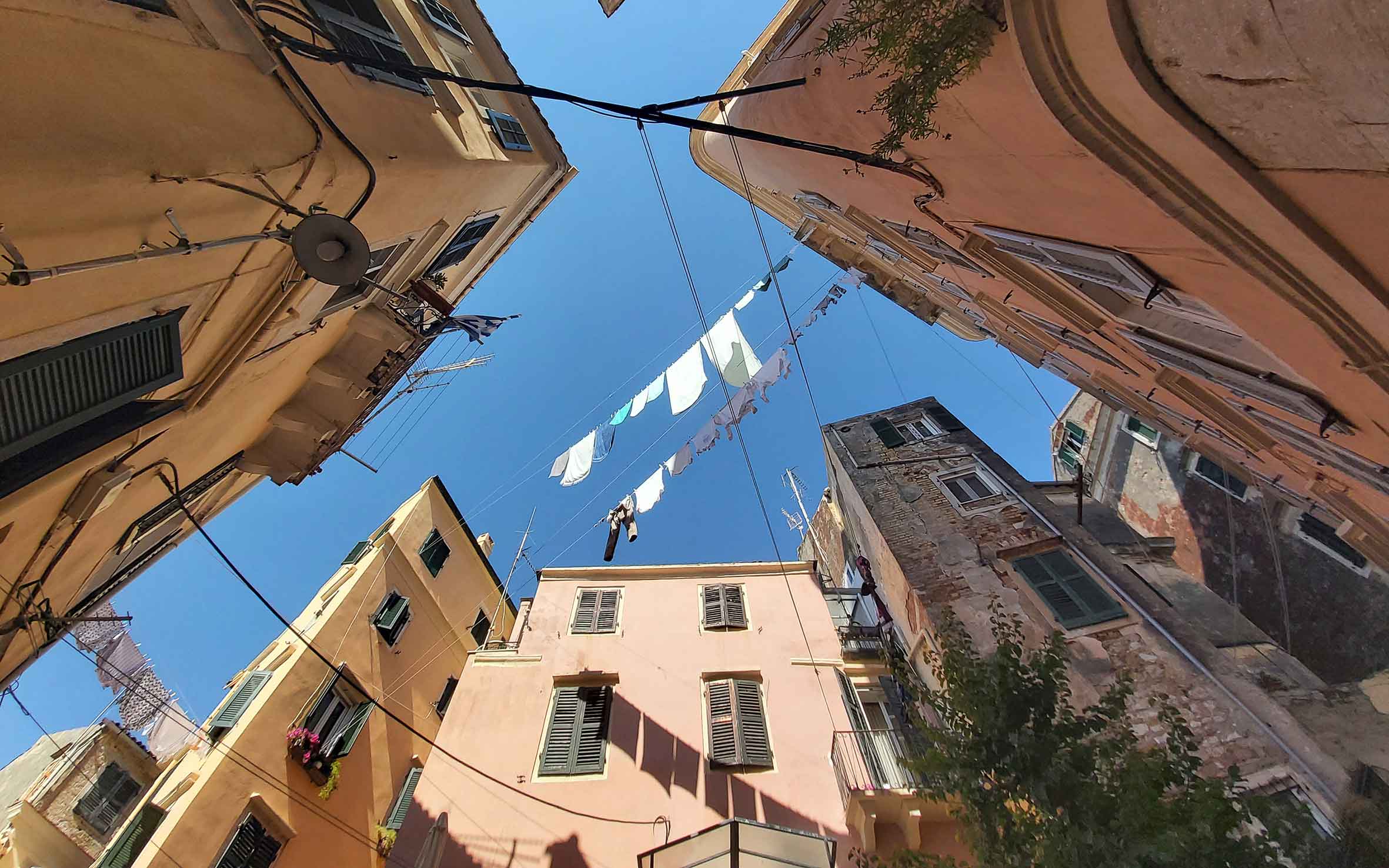
© Shutterstock
At the Liston, I mentioned this thought to my companions, all authors and readers and fellow guests at the Corfu Literary Festival, and received agreeing nods in return. I wasn’t the only one imagining voices or making up characters in Corfu Town. It’s not surprising. Every corner looks like a movie set, and one of the reasons that the literary festival that drew us all here exists in the first place is the large number of stories– both historical and fictional, already set on the island. Certainly some of the echoes bouncing around the old alleys must be those of the myriad fictional characters who live here in perpetuity.
As I talked with the novelist Jonathan Coe about his latest novel, “Mr Wilder & Me,” which is set in part on the island, he revealed that this was his first time in town. He did no on-site research; the descriptions in the book are based on a few Google Street View images, and on the fictional representation of the town in books and in the 1979 film, “Fedora.” In Coe’s story, the composer Calista recalls traveling to Corfu to work with director Billy Wilder on that film.
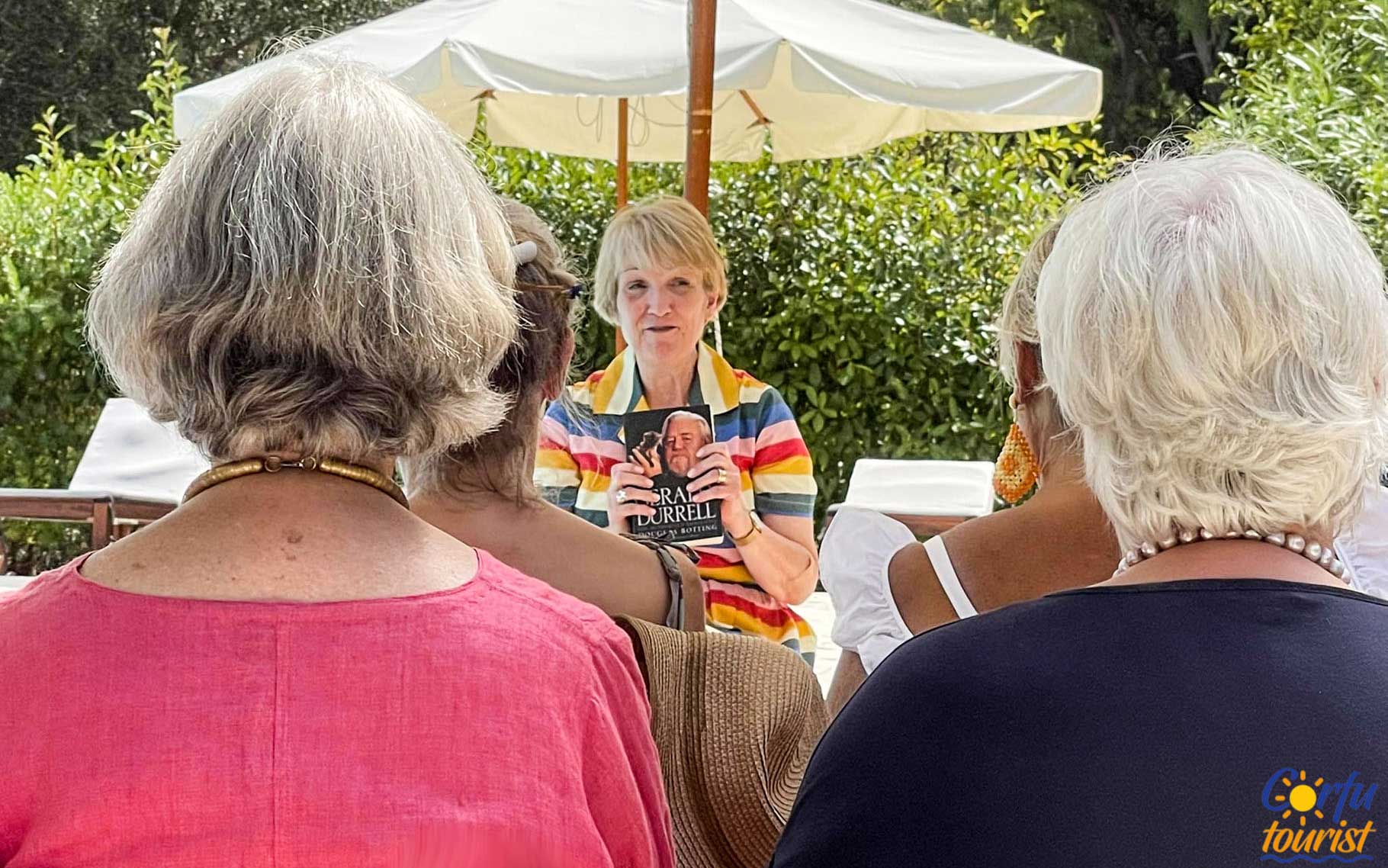
© Sarah Hamilton Gill for Corfu Tourist, a visitor guide app for Corfu.
While Edward Lear also famously resided on the island, perhaps the most well-known work of literature set on Corfu is Gerald Durrell’s cheeky and timeless autobiographical tale “My Family and Other Animals,” from 1956, in which he describes living with his mother and siblings on Corfu in the 1930s. Those who haven’t read it may have seen the TV adaption, “The Durrells,” but any bookworm with a love for Greece has almost certainly read it – especially if they’re British. At the Corfu Literary Festival, so many guests are, and everyone seemed to have vivid childhood memories of that book.
Many had even been here on literary trips before, following in the delightfully quirky family’s footsteps. One of them, writer Melanie Hewitt, recently published her debut novel, “Looking for the Durrells,” in which a young British girl named Penny makes a trip just like that, and ends up getting as entangled with Corfiot life and locals as her heroes did. “It’s about wanting to step into what you perceive as the real world – that is, in a book,” Hewitt told me. “And I thought, if the Durrells were alive today, what would their lives on this island look like?”
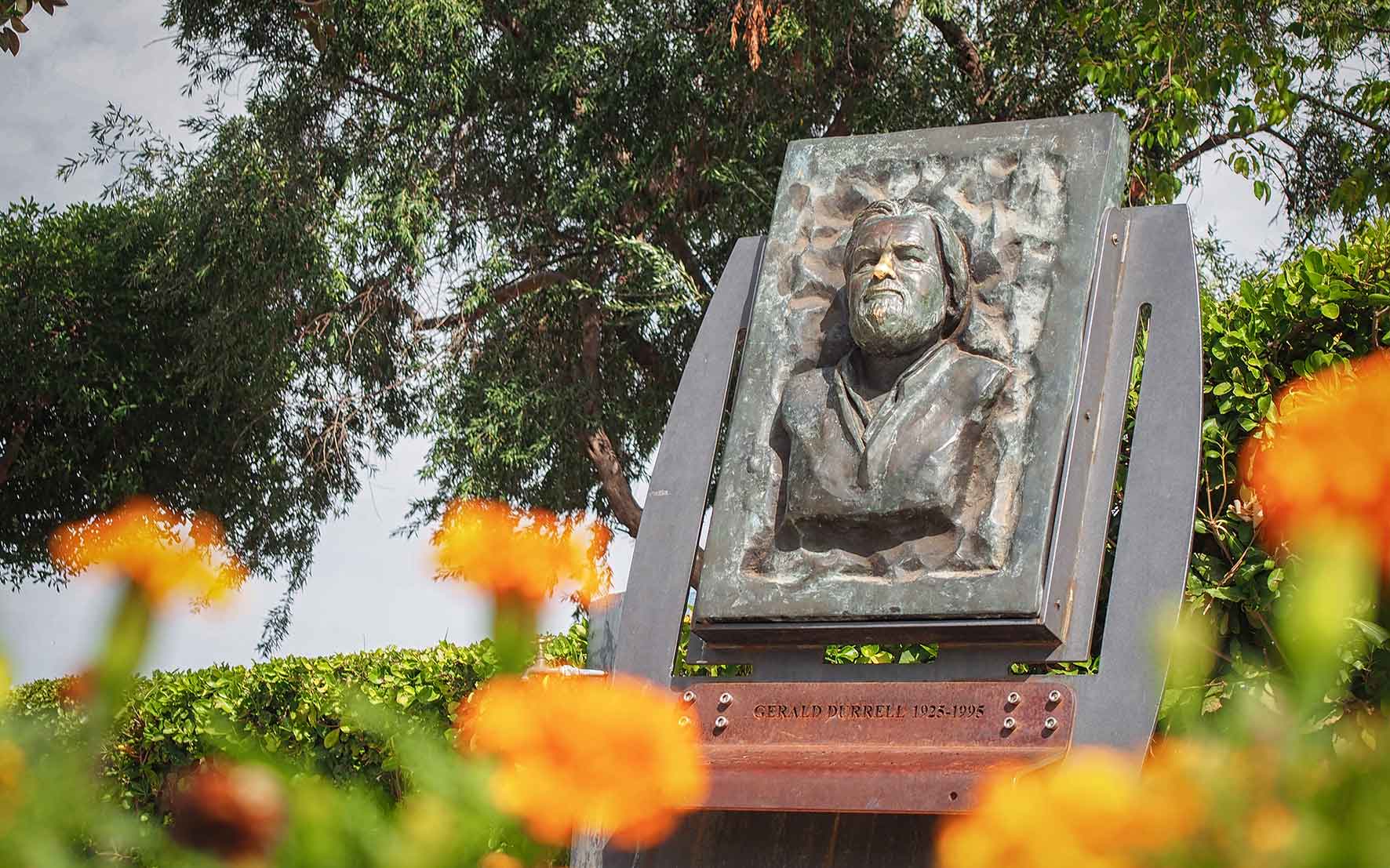
© Shutterstock
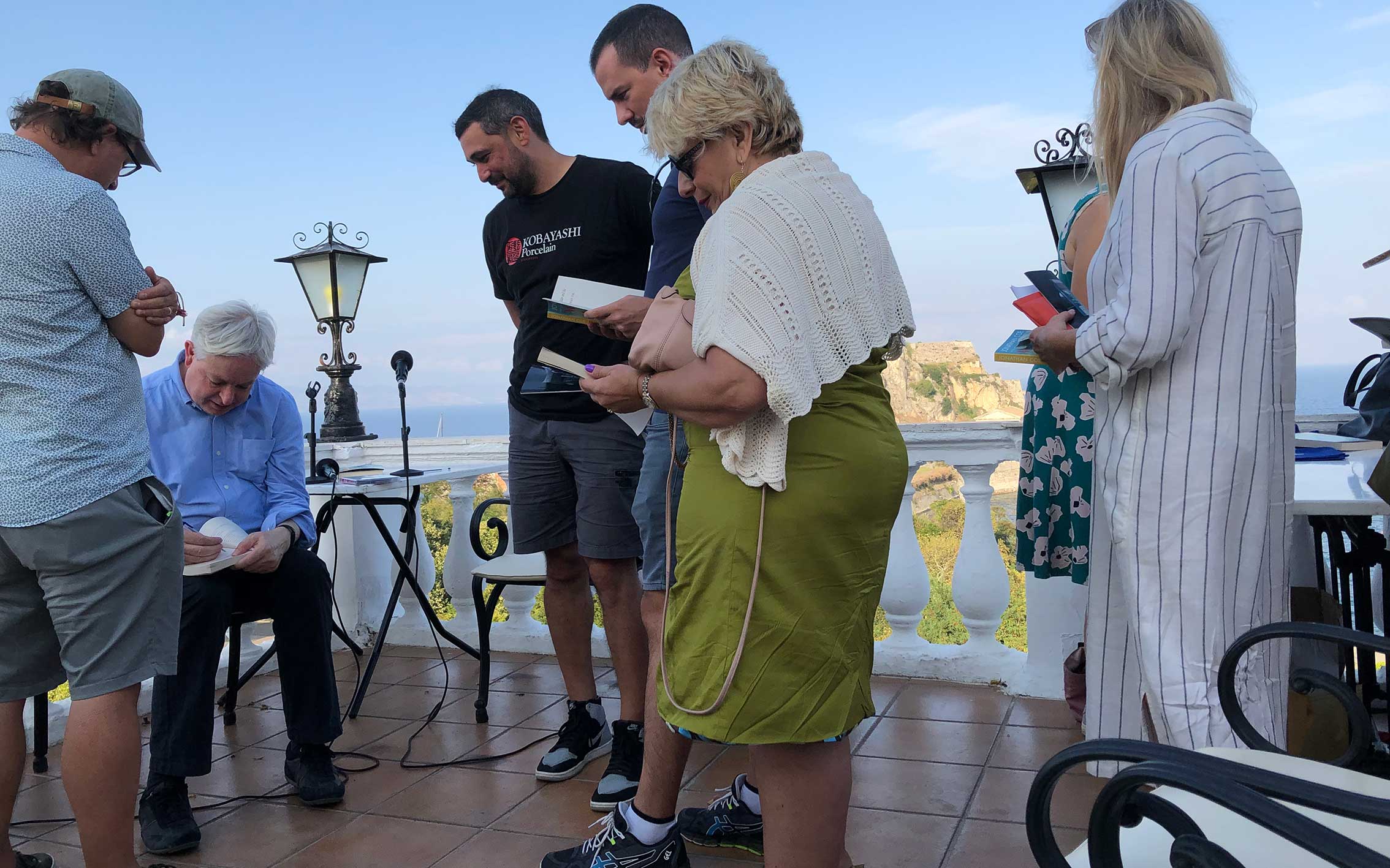
© Alkistis Triberi
The Russian literary theorist Mikhail Bakhtin would have described Corfu’s parallel make-believe universe, in which fictional characters like Calista and Penny mingle with real people like Billy Wilder, as a polyphonic world. In it, every voice is equal, and thus the definitions of fiction and reality are blurred. Swedish literary scholar Örjan Torell, a fan of Bakhtin, speaks of an author’s tool he likens to an “invisible city” – a toy city, built to resemble reality in the tiniest detail, populated with polyphonic characters. This certainly seems to apply to Corfu. “It’s strange,” Hewitt explained: “I step off the plane now and I half-expect Penny to be here.”
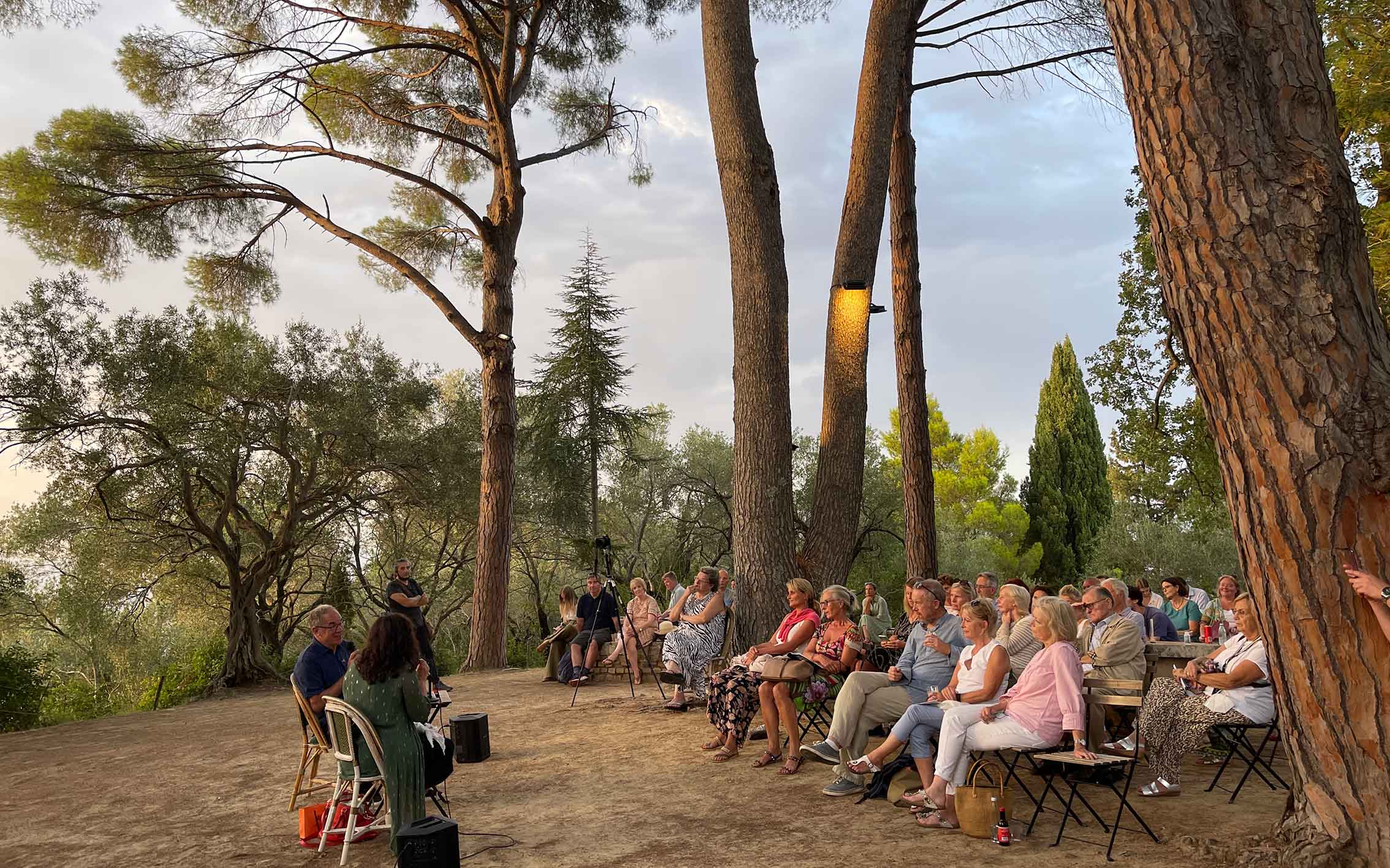
© Alex Preston
A cultural festival
In Corfu Town, the mundane confines of reality are made fuzzier at the edges by the fact that many of the town’s historical figures appear to have been more eccentric than the heroes in the stories. In a festival event held the courtyard of the Holy Trinity Anglican Church, Dr Adam Rutherford and local researcher Nikolas Mamalos spoke about Panagiotis Potagos, a forgotten 19th-century explorer who somehow appear to have traveled to the far ends of the world on empty pockets, and ended his life as a hermit in the north of the island. Writer Alex Sakalis and professor Stavros Katsios followed this with a discussion about the generous but bizarre personality of Lord Guilford, who founded the country’s first university here, and who forced the students to walk around in robes, like the ancient Greeks.
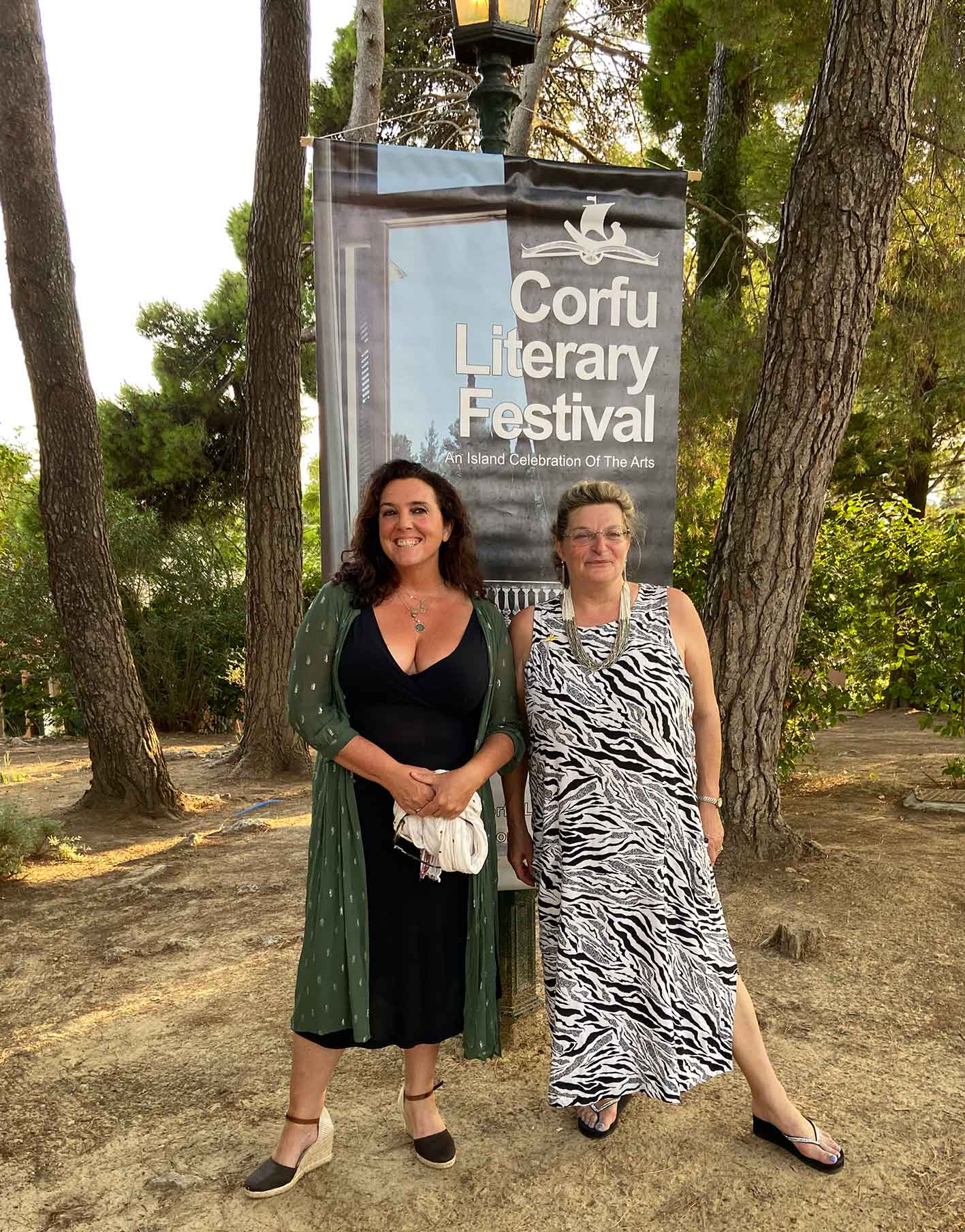
© Emma O'Bryen
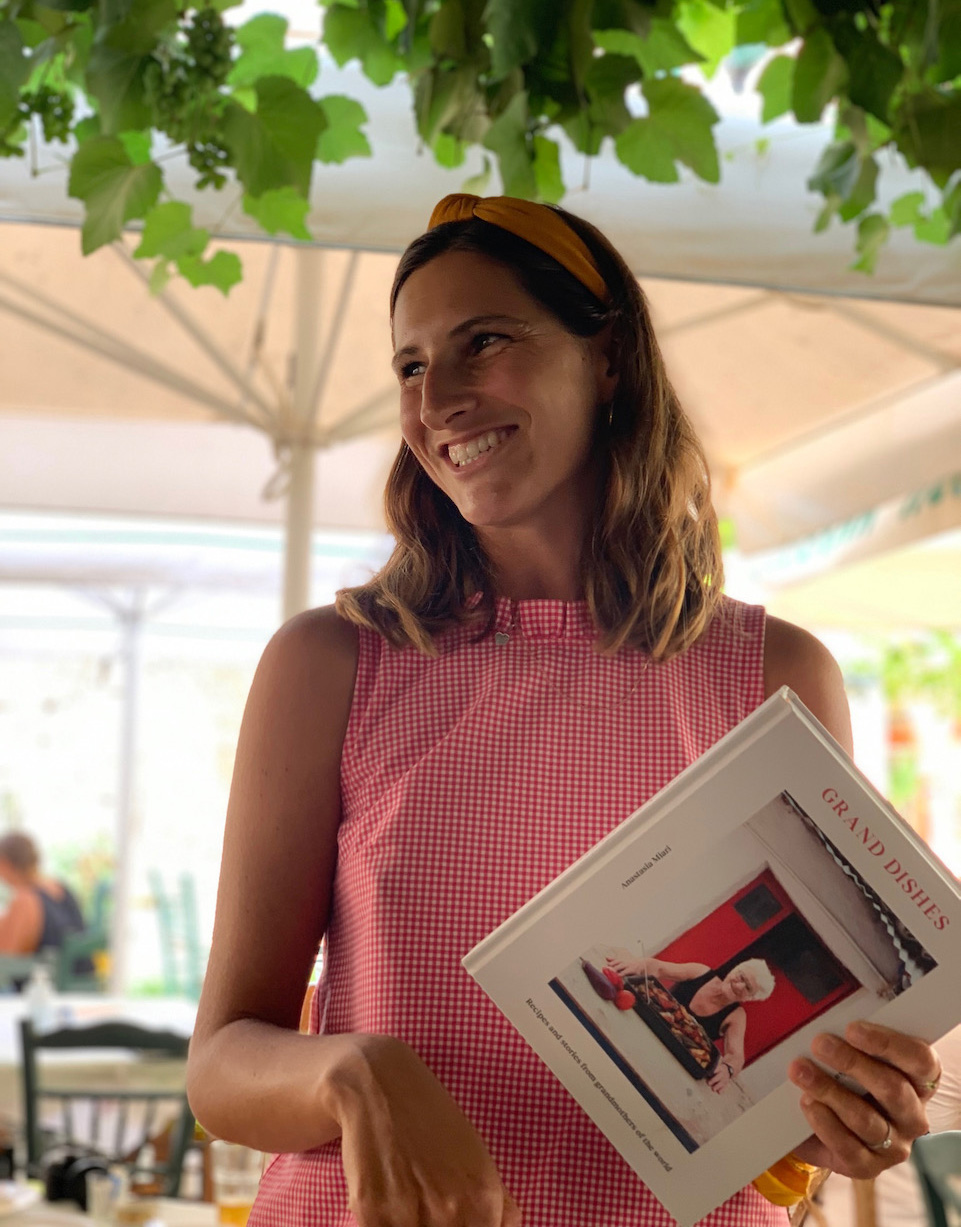
© Wyndham Albery
On another evening, beneath the palm trees in the garden of the Achilleon Palace, Professor Sarah Churchwell and author and co-founder of the event Alex Preston captivated the audience with details of the life of the beautiful Empress Elizabeth of Austria, who had built that very palace in a futile attempt to create a new, happier life.
While it’s called the Corfu Literary Festival, this annual gathering is actually a cultural festival with a broader sweep. This year’s events ranged from an entertaining lecture about the goddess Aphrodite by historian and TV personality Bettany Hughes, to a food tour by cookery writer Anastasia Miara, to a live recording of historians Dominic Sandbrooke and Tom Holland’s podcast “The Rest is History,” to an environmental event with Churchwell, author Julian Hoffman and environmental campaigner Costas Kaloudis.
“You see, what we don’t do is invite an author that’s only trying to sell a book,” explained Annabelle Louvros, co-founder of the event. “They can go to forty other festivals and do that. We want authors who’ll come for the conversations.”
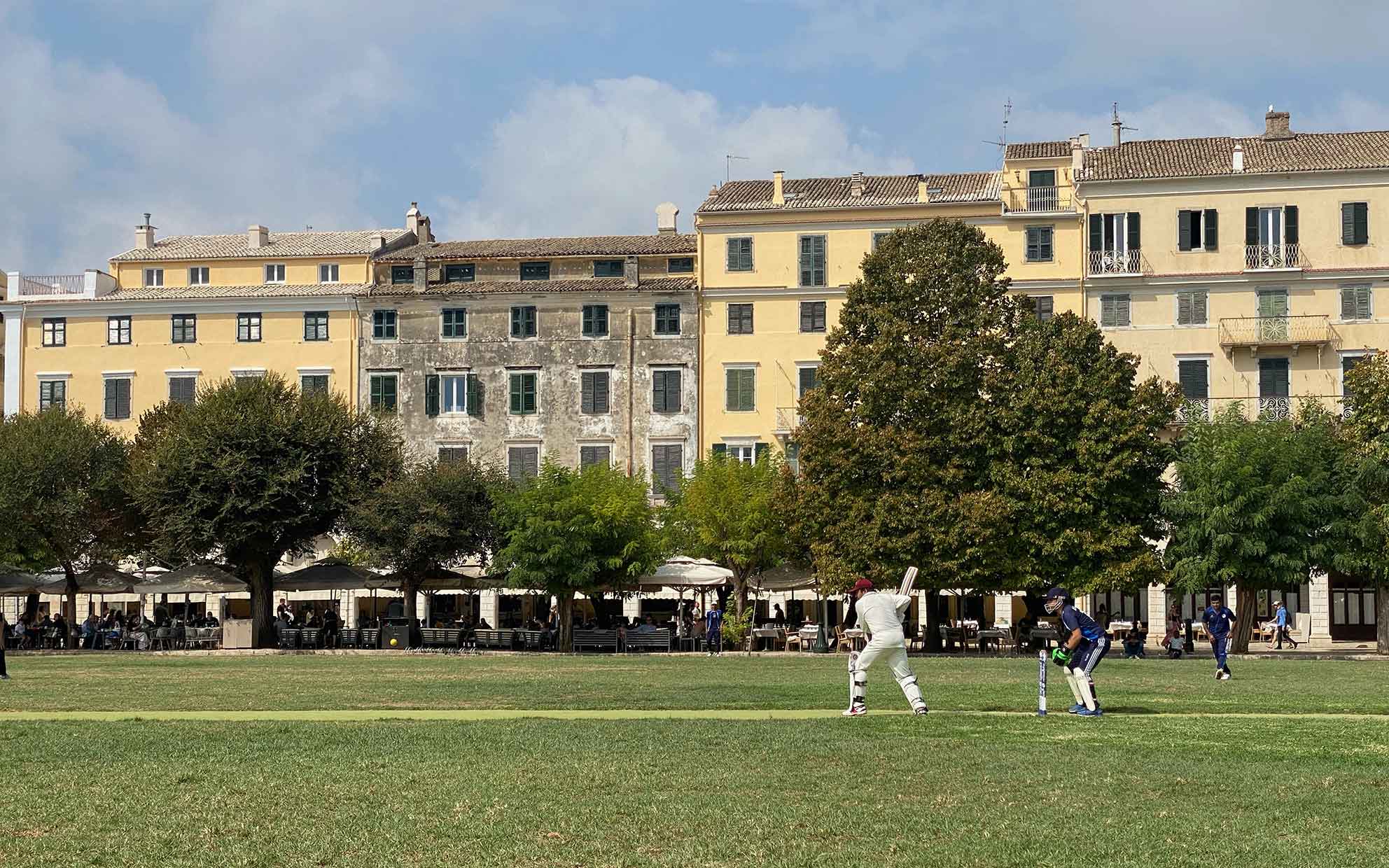
© Adam Rutherford
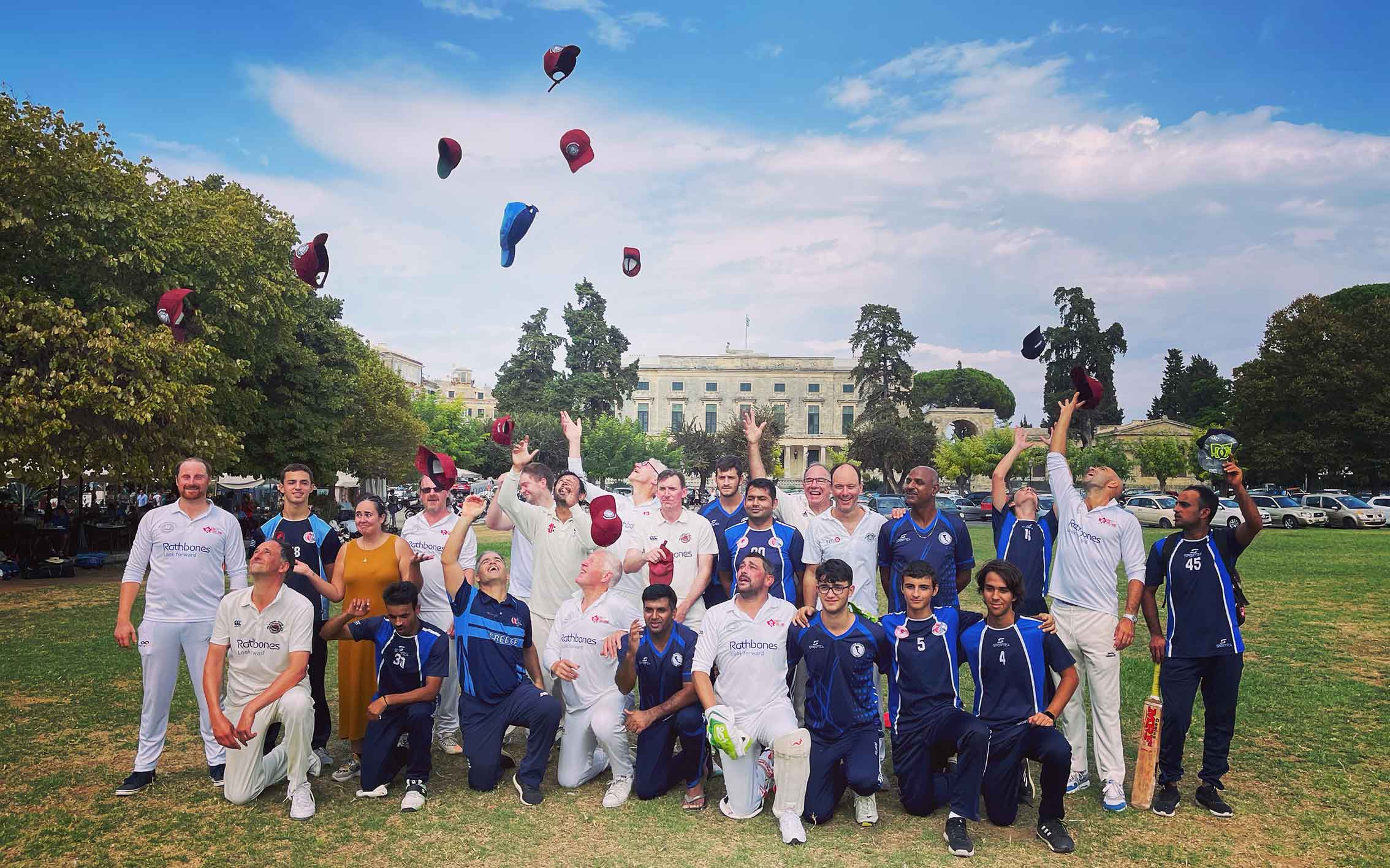
© Alex Preston
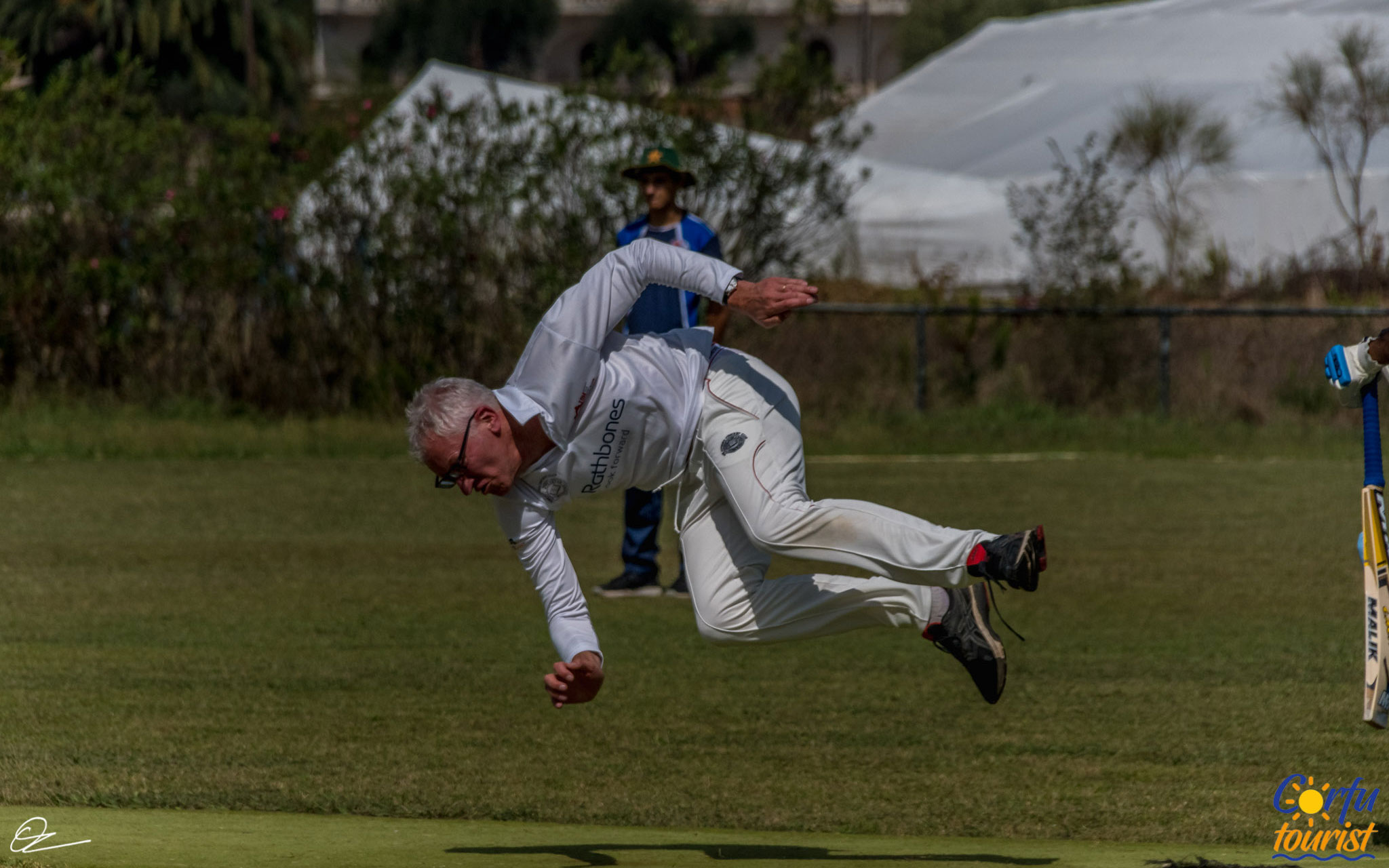
© Sakis Kantas for Corfu Tourist, a visitor guide app for Corfu.
And then there’s the cricket
If a “Books and Cricket convention” on a Greek island sounds unusual to you, you’re not alone, but there’s a reason why this English sport is an integral part of the festival. The whole thing started with the game of cricket, in fact; the three founders conceived the idea for it one day when Preston, a member of the Authors’ Cricket Club, had come to the island to play, and met up with Annabelle and her husband, Corfiot Nikos Louvros.
Corfu, part of the British protectorate in the Ionian from 1815 to 1864, and still home to thousands of British nationals, has a nearly 200-year-long cricket tradition, and is home to 16 teams (two of which, Annabelle informs me, are “old-ladies’ teams”). Every year, the Authors XI, a British team made up of authors whose numbers once included the likes of P.G. Wodehouse and Arthur Conan Doyle, travel here to play the locals.
I tried to follow the game, which unfolded on the lawn at Spianada Square in front of the Liston that Sunday morning, but the backdrop, with the Venetian-era Old Fortress and the Palace of Saint Michael and Saint George, was too distracting, and the conversation, frankly, was too good.
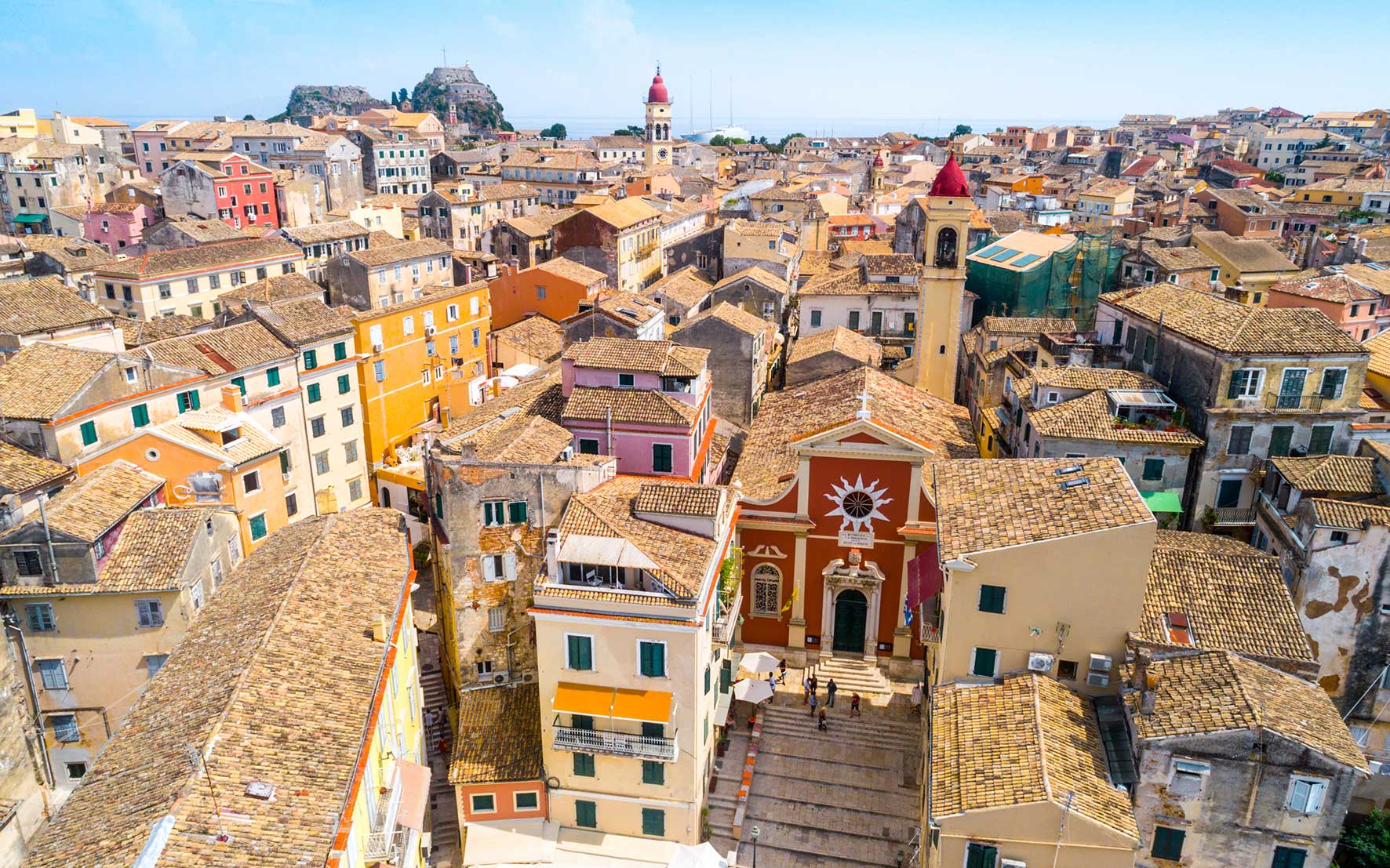
© Shutterstock
After the game, it was only a short walk back to the Cavalieri Hotel where a group of real-life bibliophiles and cinephiles then gathered to meet with Coe, the author of a book in which a fictional Calista meets with the historically very real Billy Wilder, to produce the equally real film “Fedora,” itself based on a novella. The event took place in the very same rooftop space where his protagonist Calista meets the “Fedora” film crew for the first time. “The layers of reality multiply,” Coe told me. Below us, the red tile roofs of the old town were spread out like the covers of open books, ready to be flipped over, spilling out the voices within.
Sadly, Nikos Louvros passed away from Covid-19 earlier this year, and all of the events at this year’s Corfu Literary Festival were, in one way or another, dedicated to his memory. Hewitt’s book, “Looking for the Durrells,” is also dedicated to him – making it so that he, too, is now part of the eternal population of Corfu’s parallel, literary universe.

